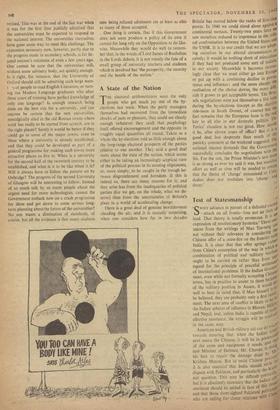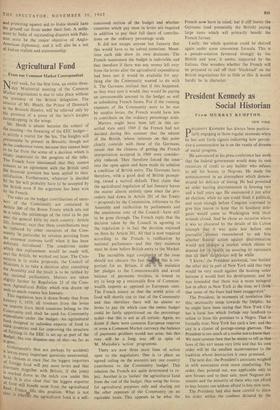Test of Statesmanship
, %NWT advance in pursuit of a defeated enellat 0—attack on all fronts—lose not an inch land. That theory is totally erroneous. It is a", expression of revolutionary hysterics.' These sell: fences from the writings of Mao Tse-tung arc not without their relevance in considering the1 Chinese offer of a cease-fire on the frontier Wit" India. It is clear that that offer springs rather from China's conception of the way in which t: combination of political and military warla„–v ought to be carried on rather than from a`"t: regard for the principle of peaceful settlernel of international problems. If the Indian Gover°; ment, even while not formally accepting Clint terms, has in practice to assent to them becaliA-0 of the military position in Assam, it would "0 well to bear in mind that, if Mao himself is tE be believed, they are probably only a first ins'. ment. The next area of conflict is likely to he.li the Indian spheres of influence in Bhutan, Sikkiril, and Nepal, and, unless India is capable of effective resistance, the struggle will be res°1‘` in the same way.
American and British military aid can do towards ensuring that, when the Indian ar!"'„,a next meets the Chinese, it will be in possess7,,, of the arms and equipment it needs, and new Minister of Defence, Mr. Chavan, is l‘irir'% his best to repair the damage done by Krishna Menon. But to resist Chinese Pressnw it is also essential that India should settle dispute with Pakistan, and particularly the 14-asi , mfr question. This may be difficult P°1iticalb: but it is absolutely necessary that the Indian Oat continent should be united in face of this 1hre_, and that those short-sighted Pakistani potiticia.73 who and calling for closer relations with C11111
and protesting against aid to India should have the ground cut from under their feet. A settle- ment by India of outstanding disputes with Paki- stan must be the major objective of Anglo- American diplomacy, and it will also be a test of Indian realism and statesmanship.







































 Previous page
Previous page